I guess a lot of people know Spain used to be a part of the Roman Empire which you can hear in the modern Latin language of Spanish. But it is probably a lesser known fact that there were Greek settlements in Spain even before the romans arrived. The ancient settlement of Empuries is just such an ancient Greek settlement.
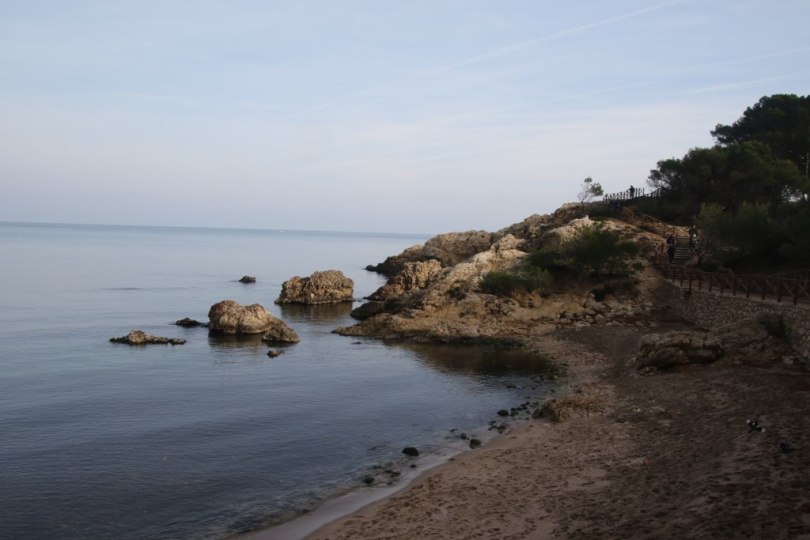
The ancient city was founded by Greek settlers from Phocaea in 575 BC back when Rome was still just a small town ruled by the local kings. When the Persians conquered Phocaea in 530 BC the still fairly new settlement received a lot of refugees ensuring the settlement grew fairly rapidly to become a more important town.
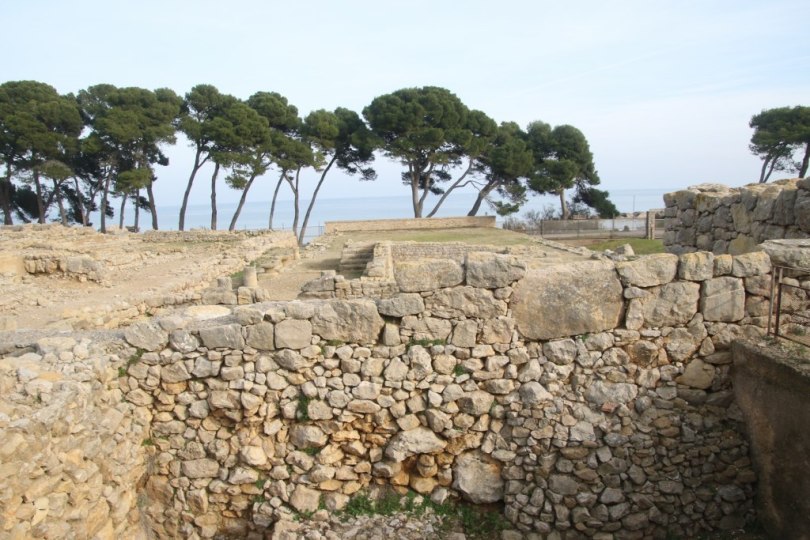
The city came under increasing pressure from the Carthaginian expansion in the Iberian Peninsula but the city resisted the pressure and kept its identity as a Greek city. When the second Phoenician War broke out between the Carthaginian represented by Hannibal and Rome the city of Empuries sided with the Roman. This was pretty fortunate since the roman prevailed in the end expelling the Carthaginian from the Iberian Peninsula making it into a roman colony.
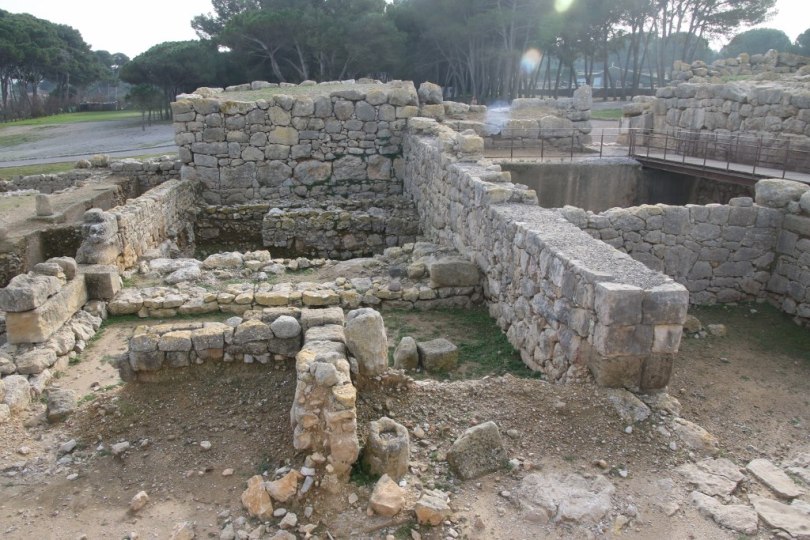
Wall of the Greek city 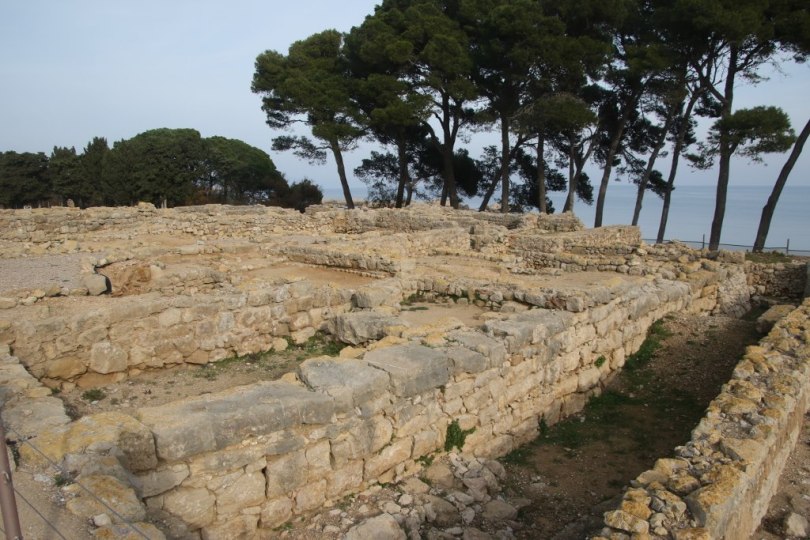
Greek city down at the water edge 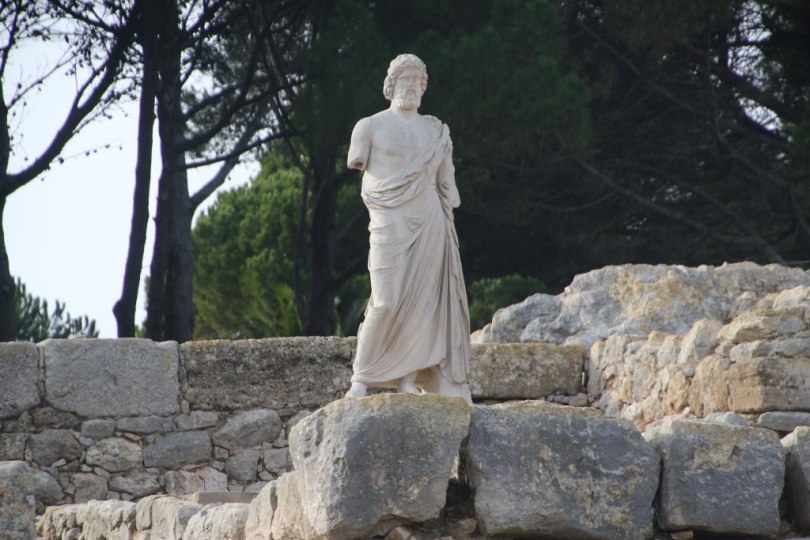
Statue in the Greek park
Since the Greek city supported the Romans they were allowed to keep a large degree of independence under the roman rule and the Greek city were left standing. But it wasn’t to be left completely alone. Just behind the Greek city the Romans founded a new city – a truly Roman city. So in fact there was a Greek city down at the sea with a Roman city a little bit further inland behind the Greek city.
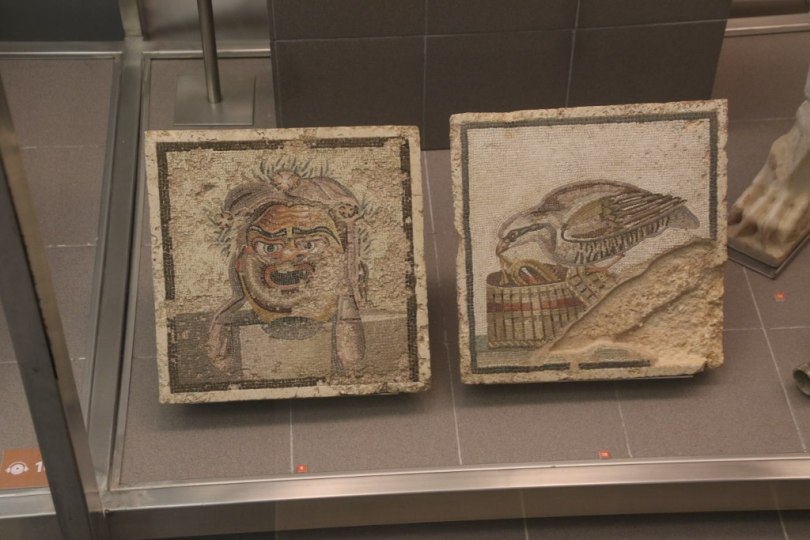
A couple of mosaics in the museum 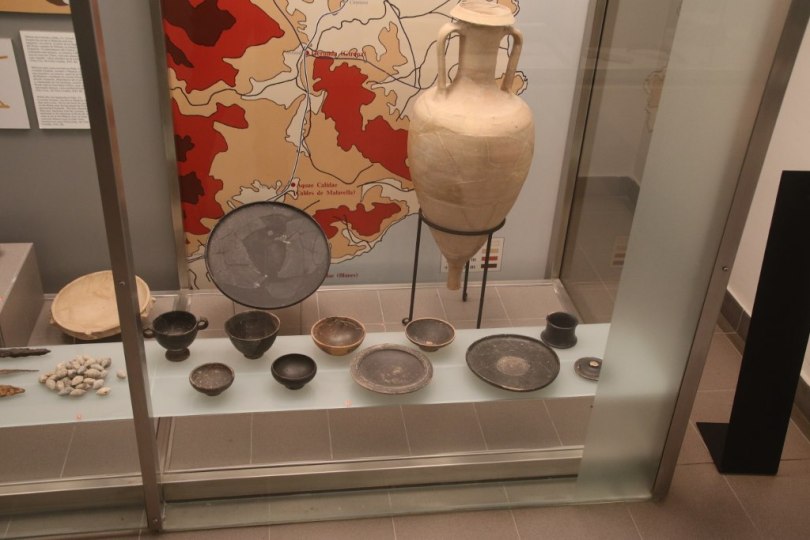
Amfora in the museum 
Statue of a god in the museum
Today the settlement has been turned into a museum and it is possible to go and visit. You can get to the city by walking a bit along the beach to take in the view before or after your visit to the ancient site. When you go in you can go and see both the Greek and Roman settlement – it is one of the few places around the world where you can actually see both of these ancient cultures so close to each other.
When we get to the entrance we get a free audio guide which gives a lot of information about the area while we explore it. There might even be a bit too much information so we skip some of the extra info offered by the guide.
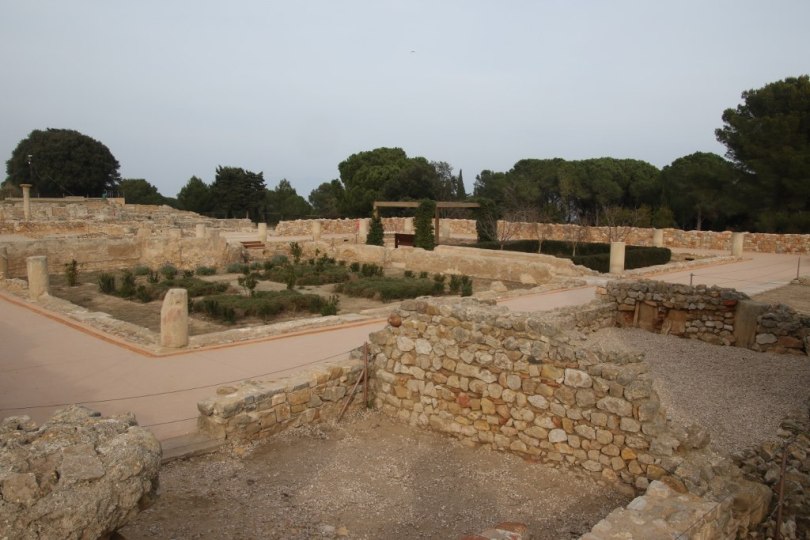
Roman villas 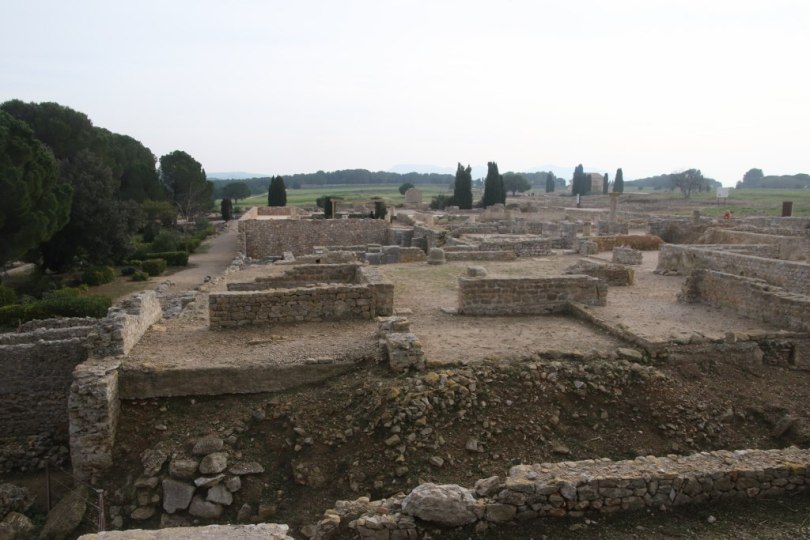
Roman city 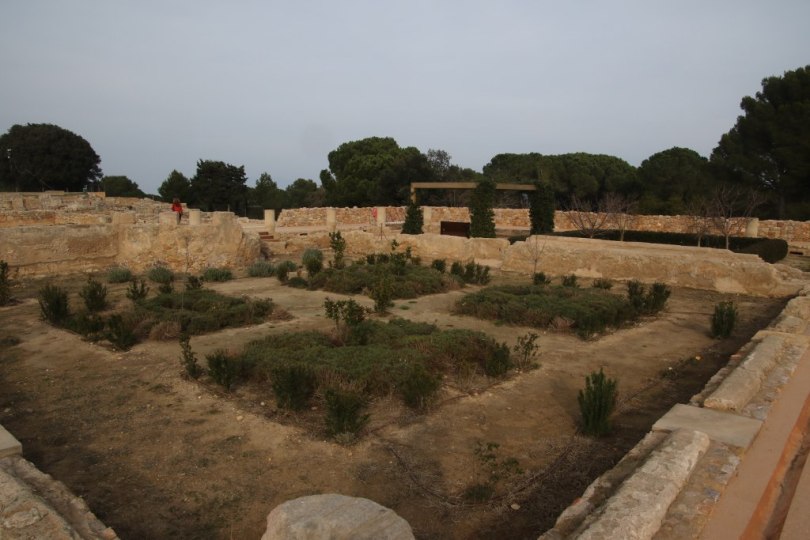
A big Roman villa 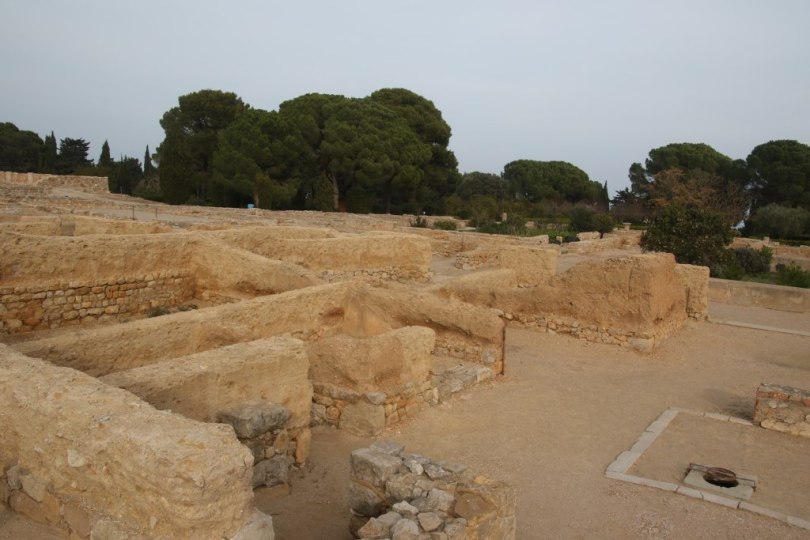
Old Roman settlement
We start by exploring the Greek settlement down at the coast which is a nice little area. But it is clear the older Greek city is a little bit more modest compared to the buildings in the Roman settlement which were bigger. Unfortunately there isn’t much left standing in either the Roman or Greek settlement but the audio guide helps to give an idea of what it used to look like back in the day.

Reconstruction at the forum 
Old Roman settlement
After having gone through the Greek settlement we get to a small museum which has some artefacts from the two cities with some mosaics and old amphora’s.
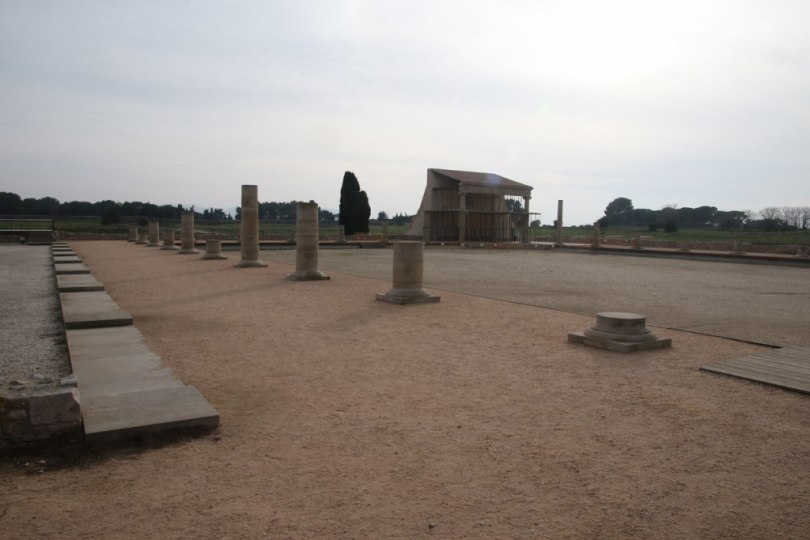
The cities started to go downhill before the end of the roman empire because the harbor lost its place as the most significant harbor when a new road were built connecting a couple of other harbors north and south of Empuries. So most of the interesting things at the museum and at the settlement are from the early part of the Roman history in Spain.
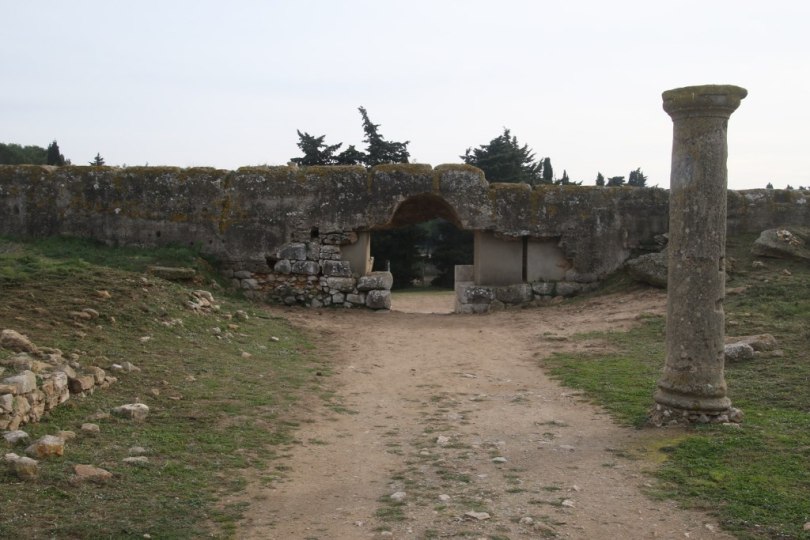
Wall of the Roman city 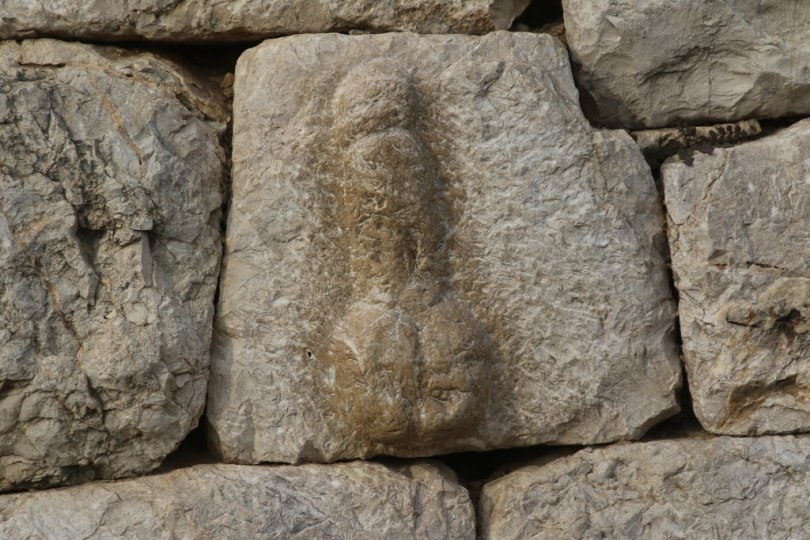
Lucky charm in the wall 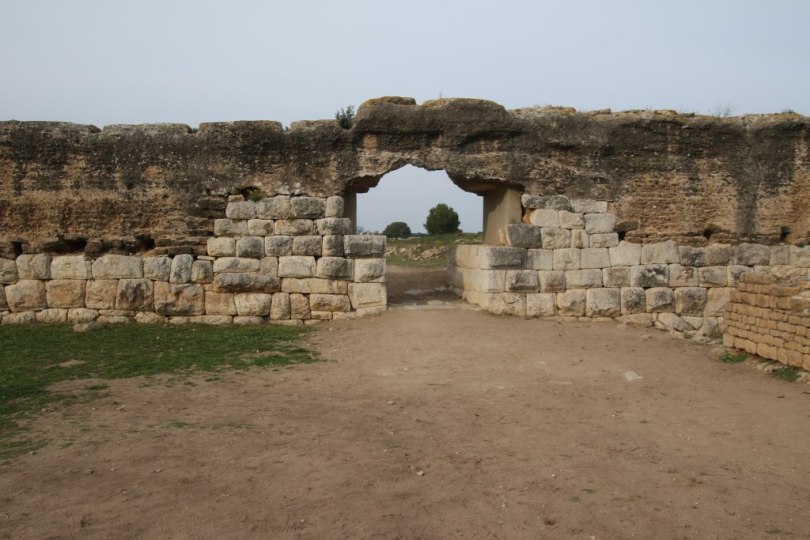
The wall of the Roman city
After the museum it is time to wonder the old Roman city. There isn’t a lot of building still standing but you can see where the walls of the major houses were. And these villas were a lot bigger than Greek houses down below. After finishing the sightseeing at the Roman forum we head back out through the gate of the city which is still standing.


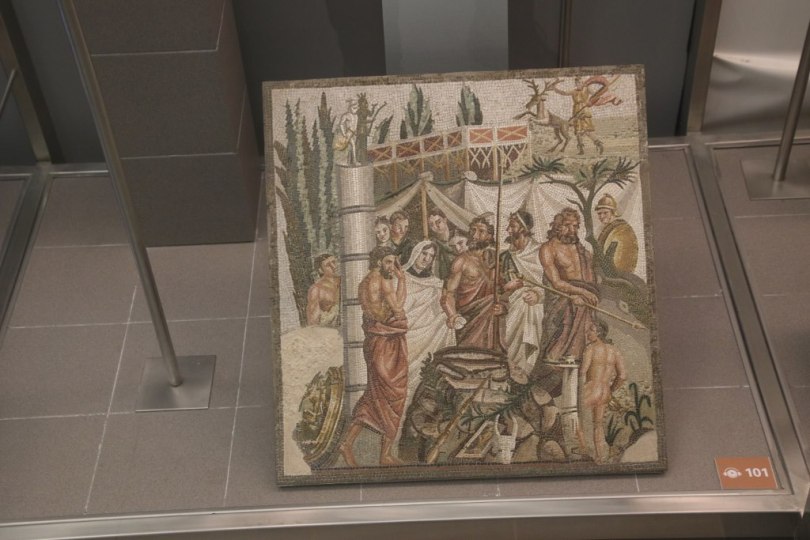
Those Greeks were everywhere in the Med even to Marseille France!
LikeLiked by 1 person
I know – but they didn’t settle everywhere. This was one of the most westerly Greek settlements.
LikeLiked by 1 person
Massalia was a Greek colony founded first by the Phoeceans in 600 BC today is call Marseille.
LikeLiked by 1 person
I know the Greek and Phonecians divided the Medeterenean between them more or less.
LikeLiked by 1 person
This looks like an interesting area to explore and learn. My daughter went to Greece and was really disappointed in the amount of theft and desecration there was to the monuments. This park looks like it’s retained its history a bit.
LikeLiked by 2 people
Well over the centuries the locals used the old cities as a source of building material. So a lot of the original buildings has been lost hundred of years ago. But they do excavate the rest. Apparently they have only dug out a small portion of the Roman city so who knows what is still under the ground here.
LikeLiked by 1 person
Awesome blogg you have here
LikeLiked by 1 person
Thanks
LikeLike